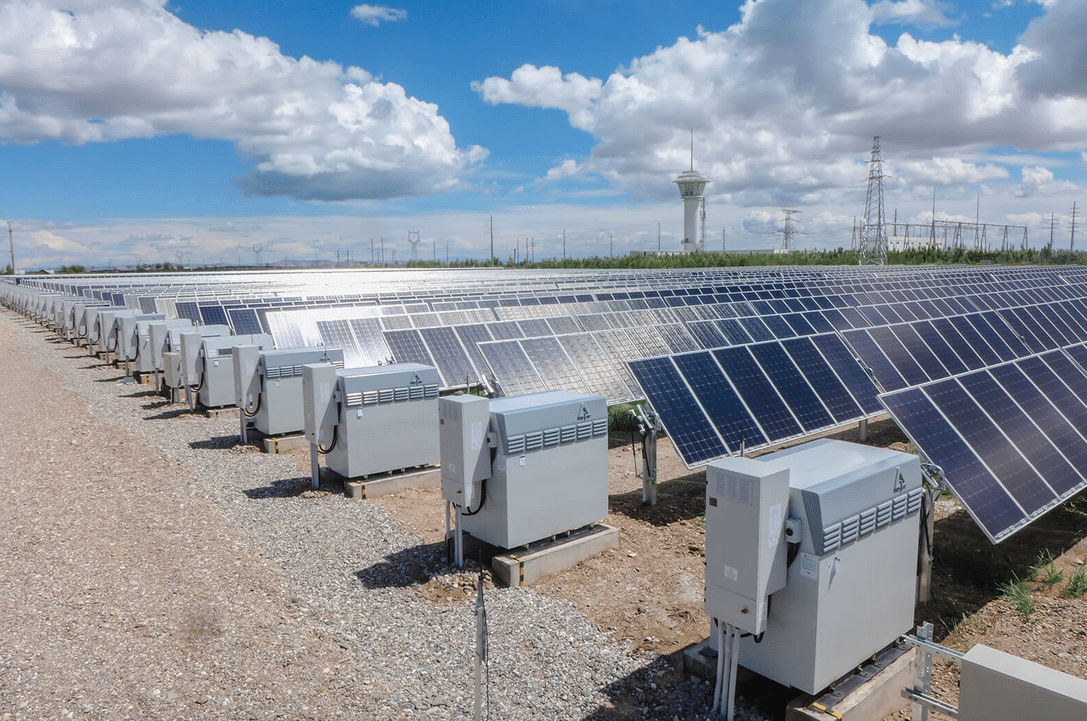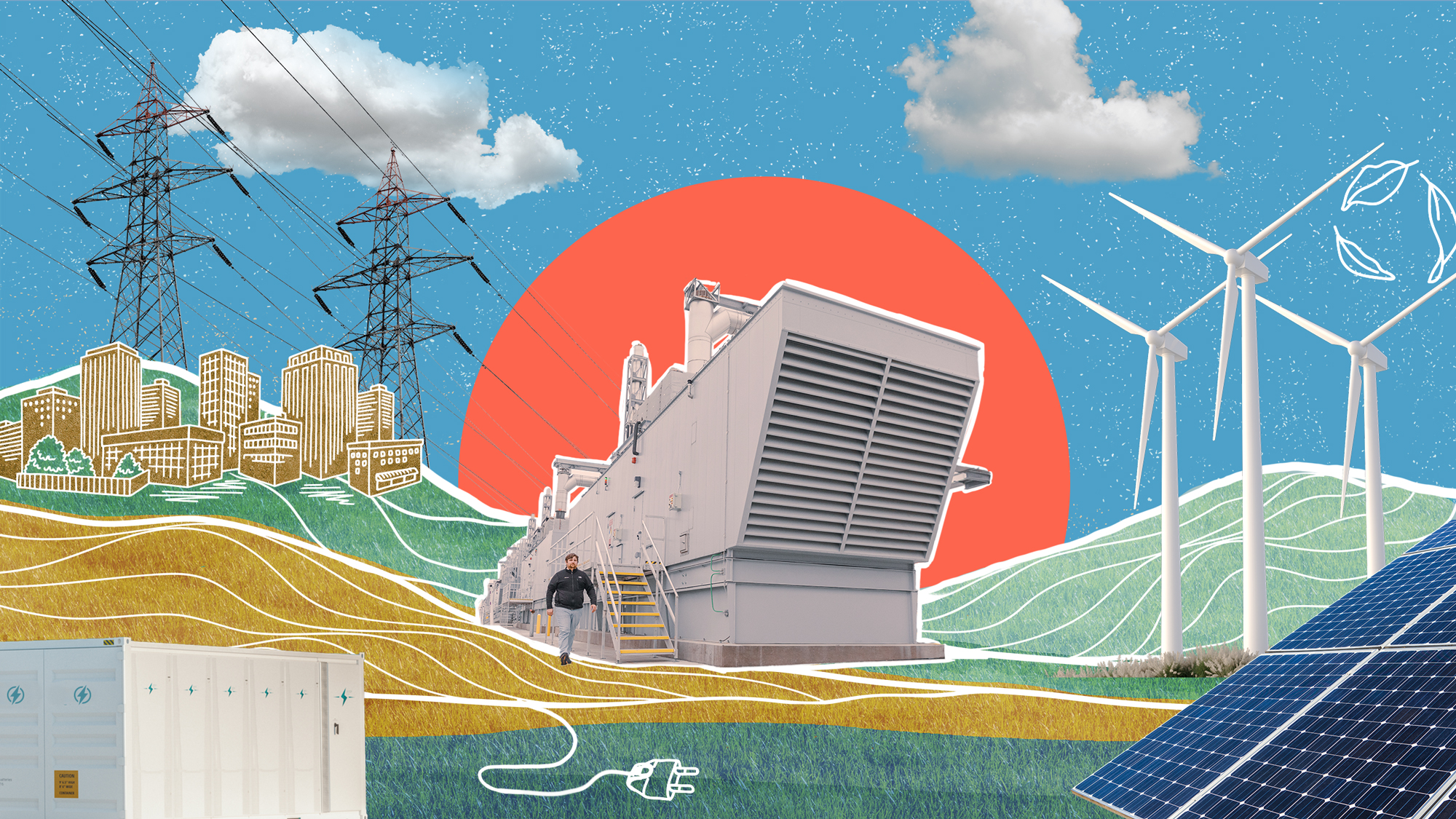Solar Battery Storage is the technology that allows energy generated by solar panels to be stored for later use. Introducing solar battery storage has revolutionized the solar energy industry, providing a reliable and cost-effective solution for storing excess energy during the day and using it at night or during periods of low sunlight.
This technology allows homeowners and businesses to maximize the benefits of their solar power systems by diminishing their reliance on the grid and minimizing energy bills. By tapping into solar battery storage, individuals can contribute to a greener future by reducing carbon emissions and embracing renewable energy sources.
We will explore the advantages of solar battery storage, its working principles, and its applications, highlighting its potential to transform how we produce and consume energy.

Credit: www.pv-magazine.com
The Need For Solar Battery Storage
The increasing demand for green energy and the intermittent nature of solar energy drive the need for solar battery storage. As renewable energy sources gain popularity, more and more individuals, businesses, and governments are looking for sustainable alternatives to meet their power needs.
Solar energy offers a reliable and clean solution. Still, Its sporadic nature presents a difficulty regarding consistent power supply.
Increasing Demand For Green Energy
In recent years, there has been a significant increase in the demand for green energy. People are becoming more conscious of the negative impact of traditional fossil fuel-based energy sources on the environment. As a result, there is a growing shift towards sustainable energy sources, including solar power.
Solar Battery storage is essential for meeting this demand by addressing the issue of energy availability. With the ability to retain any extra solar energy produced over the day, battery systems ensure a steady power supply even in the absence of the sun.
Intermittency Of Solar Energy
Solar energy is reliant depending on the presence of sunlight, making it sporadic in nature. At night or during cloudy periods, solar panels cannot generate electricity. This intermittency can cause disruptions in power supply and lrestrict the solar energy’s efficacy as a standalone solution.
Solar battery storage provides a solution to this challenge. Capturing excess solar energy and storing it in batteries can be used when solar panels are not producing electricity. This allows for a continuous power supply and ensures that solar energy becomes a reliable and viable option for meeting energy needs.

Credit: www.icl-group.com
Advantages Of Solar Battery Storage
Solar battery storage is a game-changer in harnessing the full potential of solar power. By accumulating extra power generated by solar panels and storing it in batteries for later use, solar battery storage offers several compelling advantages. Let’s explore these advantages in detail:
Managing Energy Demand
Among solar battery storage’s most important benefits is its ability to manage energy demand effectively. With traditional solar PV systems, excess electricity generated during the day is typically exported back to the grid. However, during peak demand periods, the energy grid may struggle to meet the power requirements, leading to potential blackouts and higher electricity costs.
Solar battery storage solves this issue by storing excess energy and making it available during peak demand. Homeowners and businesses can reduce electricity costs and ensure a consistent power supply by avoiding reliance on the grid during high-demand periods.
Enhancing Grid Stability
Solar Moreover, battery storage is essential for improving grid stability. Traditional energy grids often face challenges balancing supply and demand due to fluctuations in renewable energy sources, such as wind and solar power. The excess electricity produced while demand is low can be saved and used.
When demand is high, install solar battery systems at homes and businesses. This effectively reduces stress on the energy grid, stabilizes power supply, and mitigates the risk of grid failures. The energy ecosystem becomes more reliable and resilient with enhanced grid stability.
Maximizing Renewable Energy Potential
Increasing the share of renewable energy in the overall energy mix is crucial for a sustainable future. Solar battery storage, when combined with solar PV systems, maximizes the potential of renewable energy production.
By putting extra solar energy into storage that would otherwise be wasted, solar batteries enable homeowners and businesses to rely more on clean, renewable energy and reduce dependency on fossil fuels. This helps reduce carbon emissions and contributes to building a greener and more sustainable energy infrastructure.
To summarize, solar battery storage offers a range of advantages, including effective management of energy demand, improving grid stability, and utilizing as much renewable energy as possible. By adopting solar battery storage systems, individuals and communities can leverage the full benefits of solar energy while helping to create a more sustainable and clean future.
Technological Developments In Solar Battery Storage
The field of solar battery storage has witnessed remarkable advancements in recent years, revolutionizing how we harness and utilize solar energy.
Technological developments in solar battery storage have led to improved battery efficiency, cost reduction of battery systems, and the emergence of exciting technologies for energy storage. In this piece, we will investigate these developments in detail.
Improved Battery Efficiency
One of the significant technological advancements in solar battery storage is improved battery efficiency. Batteries can now store and release more energy without wasting it through inefficiencies. Higher efficiency translates to better utilization of the solar energy stored in batteries, ensuring maximum output.
Cost Reduction Of Battery Systems
The cost reduction of battery systems has played a crucial part in increasing the use of solar energy accessible and cost-effective. Technology advancements have led to the production of batteries at a larger scale, reducing manufacturing costs.
Moreover, research and development efforts have led to the discovery of alternative materials that are more affordable while still maintaining high performance. This cost reduction has made solar battery storage more economical for residential and commercial solar installations.
Emerging Energy Storage Technologies
Scientists and engineers have been actively exploring and developing new energy storage technologies for solar battery storage. These emerging technologies aim to overcome the limitations of conventional batteries and bring in a new phase of energy that is sustainable and efficient storage solutions. Some of these innovative technologies include:
- Lithium-sulfur batteries: These batteries have the potential to provide a longer lifespan and a better energy density compared to traditional lithium-ion batteries.
- Solid-state batteries: Solid electrolytes are used in solid-state batteries instead of the liquid electrolytes found in conventional batteries, improving safety and energy density.
- Flow batteries: Liquid electrolytes serve as energy stores for flow batteries housed in separate tanks, allowing for easy scalability and longer energy storage durations.
These emerging energy storage technologies promise more efficient, sustainable, and long-lasting solar battery systems, driving the renewable energy sector forward.

Credit: news.microsoft.com
Solar panel battery for home
A solar panel battery system for home use is typically designed to store excess energy generated by solar panels during the day to be utilized at night or when there is little sunshine. This allows homeowners to increase their energy independence and reduce their reliance on the grid.
Here are the essential components of a solar panel battery system for the home:
- Solar Panels: These are installed on the roof or in a location with good sunlight exposure to capture solar energy and convert it into electricity.
- Inverter: Electricity produced by solar panels is direct current (DC). However, most home appliances use alternating current (AC). An inverter converts solar panel DC energy into AC electricity used in your home.
- Charge Controller: This device regulates the voltage and current from the solar panels to ensure that the batteries are charged efficiently and safely. It prevents overcharging and damage to the batteries.
- Batteries: These are used to store the extra energy the solar panels produce. Solar energy storage systems use Various types of batteries, including lead-acid and lithium-ion batteries. Battery Lithium-ion is often preferred for its higher energy density, longer lifespan, and lower maintenance requirements.
- Battery Management System (BMS): This system monitors and manages the state of charge, temperature, and other factors to optimize the performance and lifespan of the batteries.
- Energy Meter: A meter measures the energy produced by the solar panels, the energy consumed by your home, and the energy stored in the batteries. This helps you track your energy usage and the performance of your solar panel system.
- Backup Generator (Optional): In some cases, homeowners may choose to have a backup generator to provide additional power during extended periods of low sunlight or in case of emergencies.
When considering a solar panel battery system for your home, it’s essential to assess your energy needs, the amount of sunlight your location receives, and local regulations and incentives related to solar energy.
Additionally, consulting with a professional solar installer can help ensure the system is designed and installed correctly for your specific requirements. Remember that the technology and available products may have evolved since my last knowledge update in January 2022, so it’s a good idea to explore the latest developments in solar energy systems.
Frequently Asked Questions On Solar Battery Storage
What Are 3 Drawbacks To Storing Solar Energy In Batteries?
Three drawbacks of Batteries that store solar energy are limited storage capacity, high initial cost, and environmental impact. (19 words)
What Is The Best Battery To Store Solar Power?
Lithium-ion batteries are the best option for storing solar power. They are efficient, long-lasting, and have a high energy density, resulting in their being perfect for both home and business solar energy systems. Lithium-ion batteries also have a fast charging rate and can handle multiple charge and discharge cycles.
How Should Solar Batteries Be Stored?
Solar Batteries must be kept in a dry, cold environment, away from direct sunlight and extreme temperatures. Before storing, ensure they are fully charged and disconnected from devices or equipment. Check the battery’s charge level regularly and recharge if necessary to maintain lifespan.
How Much Does A Whole House Solar System With Battery Backup Cost?
A whole-house solar system with battery backup typically costs around $20,000 to $40,000.
Conclusion
Solar battery storage offers a convenient and sustainable solution for capturing and storing energy from the sun. With the ability to store excess electricity for later use, homeowners can depend less on the grid and save on energy costs.
By combining the power of solar panels with efficient battery technology, we can transition to a cleaner and more resilient energy future. Embracing solar battery storage is not only beneficial for the environment but also for your wallet in the long run.

I am a technology Specialized . I have experience in Technology, and all types of electronic devices like Battery . So I work on solving these issues and give various tips on these issues

